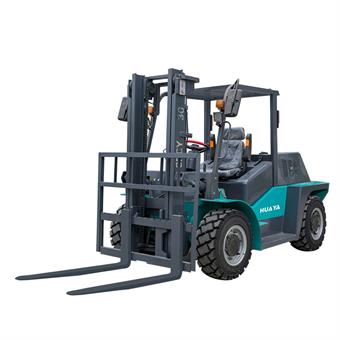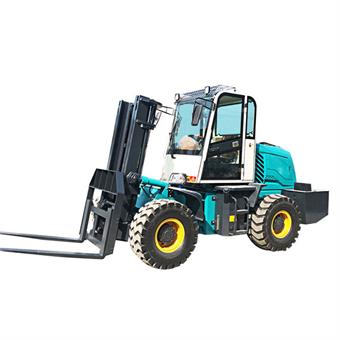
News
In the world of material handling, forklifts play a crucial role in streamlining operations and improving efficiency. However, not all forklifts are created equal. This blog post aims to shed light on the key differences between a standard forklift and a rough terrain forklift, providing valuable insights for businesses looking to optimize their logistics and handling capabilities.
A forklift, also known as a lift truck or forklift truck, is a powered industrial truck used to lift and move materials over short distances. These versatile machines are commonly used in warehouses, manufacturing facilities, and distribution centers.
Indoor Use: Forklifts are designed for indoor applications with smooth and level surfaces.
Tires: They typically have cushion or pneumatic tires suitable for indoor environments.
Load Capacity: Forklifts come in various sizes and capacities to handle different loads.
Rough terrain forklifts, as the name suggests, are designed to operate in challenging outdoor conditions. Here are the key differentiators:
Terrain Compatibility: Unlike standard forklifts, rough terrain forklifts are built to navigate uneven and rough outdoor surfaces.
Tires: They are equipped with larger, thicker tires with deep treads to provide stability and traction on unpaved or uneven terrain.
Versatility: Rough terrain forklifts are highly versatile and can handle a variety of tasks, from construction sites to agricultural operations.
Construction Sites: Ideal for lifting and moving materials on construction sites where the ground may be uneven.
Farming Operations: Used in agricultural settings to handle heavy loads of crops, equipment, and more.
Forestry: Rough terrain forklifts are valuable in forestry applications for lifting and transporting logs.
In summary, while both forklifts and rough terrain forklifts serve the common purpose of material handling, their design and capabilities cater to different environments. Choosing the right type of forklift for your operation depends on the specific needs of your business and the nature of the working environment.
While standard forklifts are designed for indoor use, some models can be equipped with features like outdoor tires for limited outdoor applications.
Rough terrain forklifts excel in construction by providing stability on uneven surfaces, making them ideal for lifting and moving heavy materials on building sites.
While rough terrain forklifts are versatile, it's essential to consider the specific conditions of the outdoor environment. Extreme terrains may require specialized equipment.
In some cases, standard forklifts can be used on gravel surfaces with proper tire selection. However, rough terrain forklifts are better suited for challenging outdoor terrains.
Regular maintenance, including tire checks and lubrication, is crucial for the optimal performance of rough terrain forklifts, especially given their exposure to challenging outdoor conditions.

